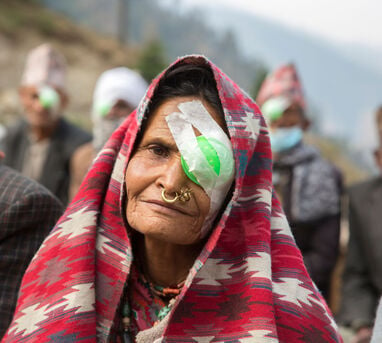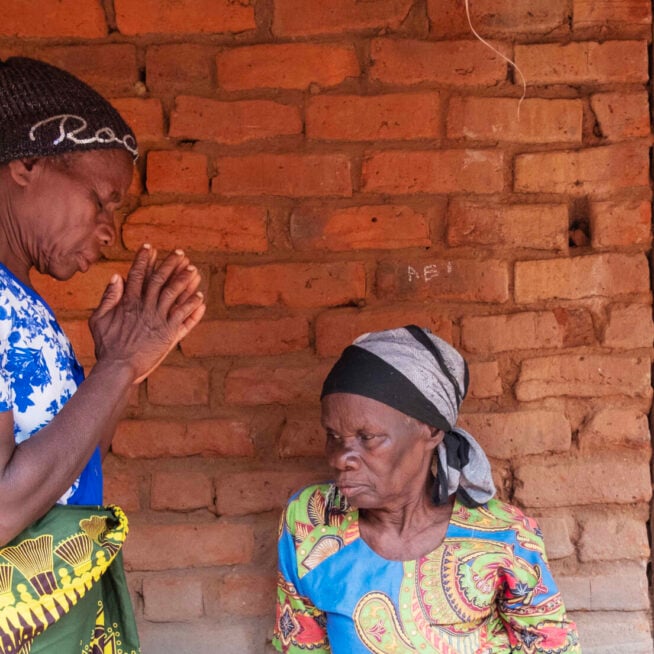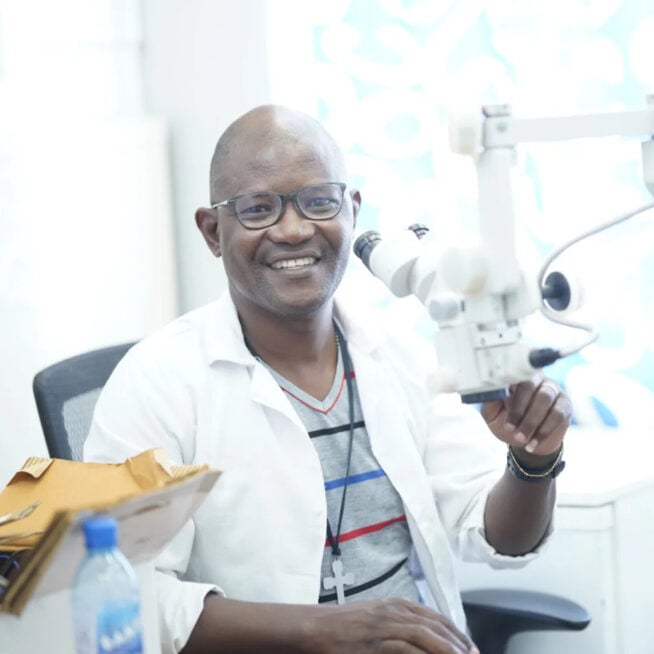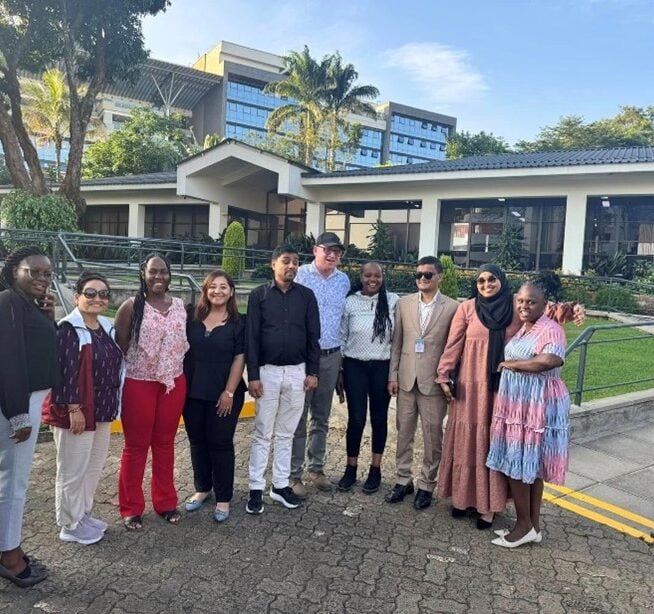In our new blog Mark Barrell, our Director of Advocacy and Influencing reflects on last year’s COP29 and looks forward to the urgent need for more disability inclusive climate action.
Promoting Disability Inclusive Climate Justice – CBM Global at COP29
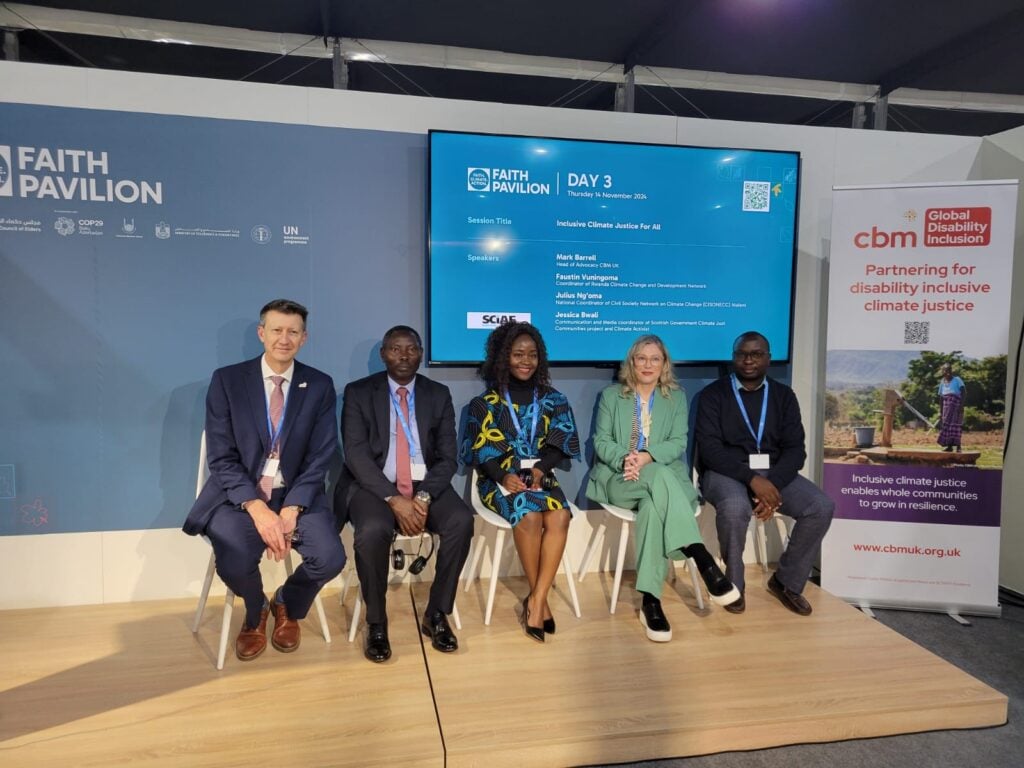
Looking back… we need to move forwards
COP29 seems to have faded into the distant past and looking back there are many who are glad it has. The hoped for outcomes, especially around commitments to climate finance, fell way short of what many were advocating for, highlighting the gaps between political talk and concrete action needed for real-world solutions.
Many observers, like ourselves, felt disillusioned and frustrated as the conference largely disappointed, lacking tangible, meaningful results. As a disability-focused INGO, we constantly face the need to promote inclusive development, and we know that inclusion without financing is useless talk. Despite the optimism of this being the “Finance COP” to lay solid foundations to tackle the urgency of climate change, the eventual absence of the needed financial support for countries in the Global South and adaptation strategies for climate-vulnerable regions was a glaring failure.
This sense of disillusionment was compounded by the inability for State Parties to address deep inequities in climate change impacts and provide solid commitments to support those most affected by climate disasters, leaving many small island nations, developing countries and marginalised groups feeling unheard. Countries, particularly in the Global North, seemed more focused on maintaining their local economic interests than on prioritising global environmental goals.
Any progress?
CBM UK alongside CBM Ireland supported the CBM Global Federation representation and while many others had a focus on the finances and deliveries by the industrialised polluter countries, we had a slightly narrower, yet important focus with the growing collaboration of the informal Disability Caucus. It was a real highlight. Daily meetings happened where more than 40 people coordinated our “on the ground” efforts, representing international, regional, national and local organisations from 23 countries, 17 of which were in the Global South and we witnessed a growing representation of OPDs who attended COP29, including the local Azerbaijani OPDs.
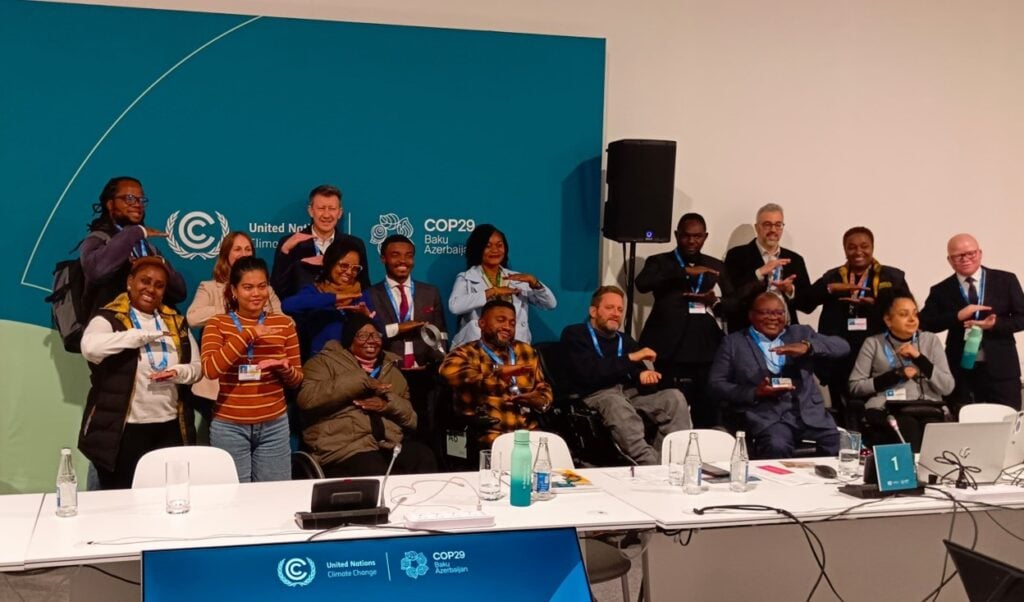
Advocating for a Disability Constituency
We continued to amplify the call of the global disability movement for the urgent need for disability inclusive approaches to climate action and the full recognition of “Disability” as a constituency at the UNFCCC. As we did so we expressed solidarity with other constituency groups such as women and gender, trade unions, environmental NGOs, the Indigenous population, youth, and human rights groups by joining their events and conversations, which helped us all to shift the narratives and create an inclusive climate space. Other constituencies invited us to join their advocacy actions and working with other civil society organisations, like Climate Action Network, helped us learn new ways to navigate this huge event.
Side events
Our side event involvement included a focus on “Inclusive climate justice for all” drawing on the Scottish Government’s Climate Just Communities (CJC) programme to explore how to ensure the successful meaningful inclusion of people with disabilities in the design, implementation and evaluation of future initiatives. We also had the opportunity alongside CAN Europe, CAN Latin America, FCDO, Columbia Government and Irish Ireland’s Department of Foreign Affairs Aid to discuss Inclusively designing and financing NDCs: Perspectives from Latin America and Europe.
These were all “signs” of progress. However, the urgent and widespread challenges faced by people with disabilities in the context of climate change, and the lack of any mention in final negotiated texts coming out of COP29 and inclusion generally, mean that going forward, there is a huge need for immediate and tangible action.
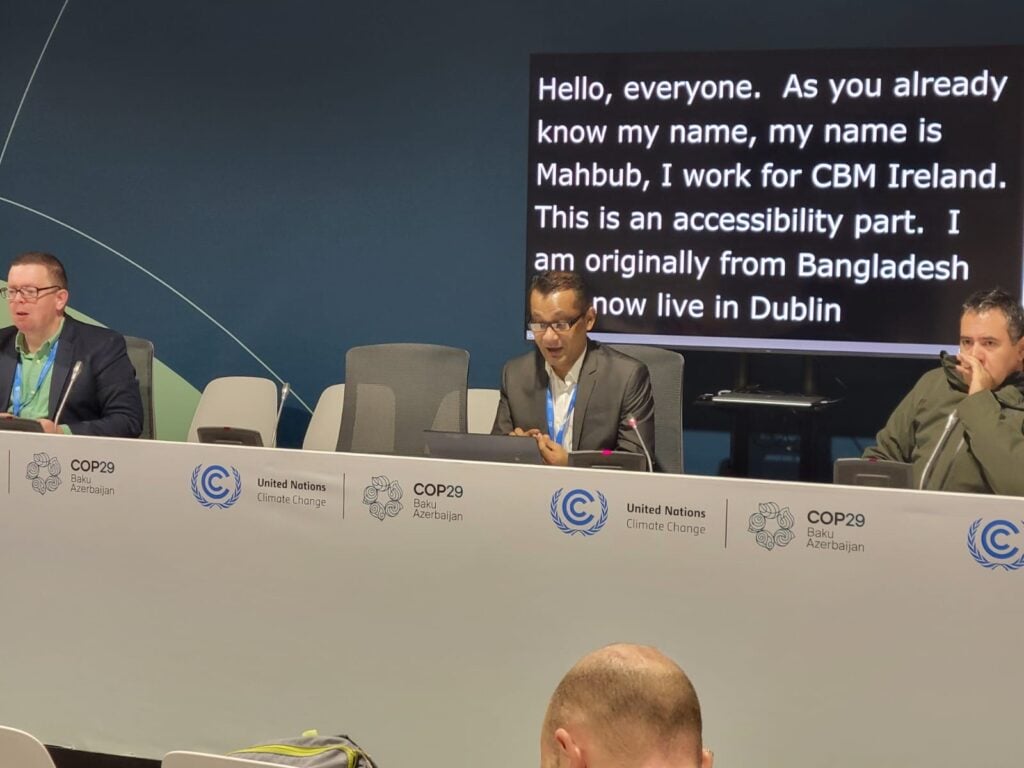
Looking forward
A major concern remains the lack of strong and comprehensive outcomes and policies which specifically address the intersection of disability and climate change, despite it being widely accepted that people with disabilities are disproportionately affected by climate disasters.
There is now an urgent need for stronger international cooperation, clearer commitment to emissions reductions, and a recognition of the global inequalities in climate change impacts. Without these steps, the global community, especially people with disabilities in climate vulnerable regions, risk being left further behind in the fight against climate change.
The lack of representation in the negotiations and decision-making processes is a barrier to being able to address concerns directly – and the call for urgent disability inclusion and a “Disability” Constituency at the UNFCCC has to be prioritised.
At CBM Global we are fully committed to this ambition and maintaining our support of the disability movement through our Climate Advocacy Roadmap . Practically, this means supporting a real drive towards mutual capacity strengthening through practical peer learning processes that will strengthen our relationships and networks between the disability and climate justice stakeholders to influence policies and negotiations at international, regional, national and local levels.
